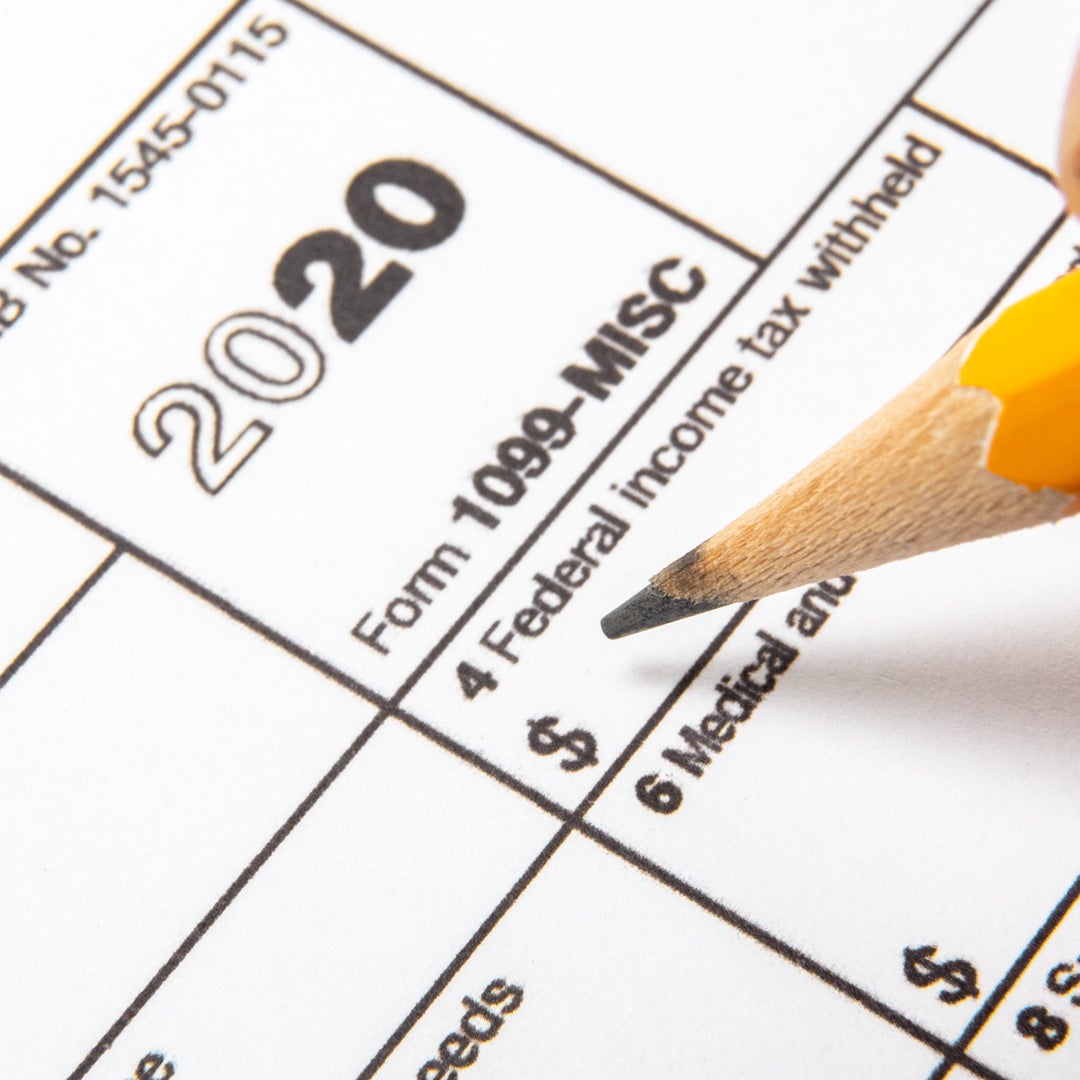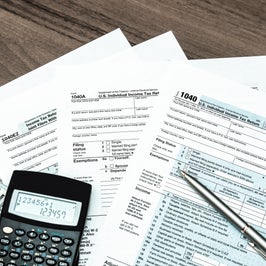What is a Form 1099?

Freelancers or independent contractors who are not registered as a corporation are likely familiar with the Form 1099, a document sent to them by clients to report non-salary income to the Internal Revenue Service (IRS) for tax purposes. But there are many types of Form 1099s used to report different kinds of income, from investments to cancellation of debt to distributions from retirement plans. With the scrambling that tax season can sometimes bring, it’s always helpful to have a refresher.
Here’s what a Form 1099 is, why you’d get a Form 1099, some of the different types, what to do with a Form 1099, and what to do if you think you should have gotten one but didn’t.
So, what exactly is a Form 1099?
Like the Form W-2, the Form 1099 is referred to as an “information return” by the IRS, but they serve different purposes. Employers send the Form W-2 to employees each year for tax purposes and the document includes their salary, wages, tips, and withholding info. A Form 1099, on the other hand, is used to report various types of income you make throughout the year outside of a salary. This includes self-employment earnings, government payments, interest and dividends, retirement plan distributions, and even prize winnings (fantasy league winnings count too). A Form 1099 is sent by an entity to the individual and to the IRS, and includes an individual’s Social Security Number or other form of Taxpayer ID Number (TIN) so the IRS can keep track if they report the income on their tax return.
What types of Form 1099s are there?
There are a number of 1099 forms, but here are some of the most common:
Form 1099-MISC
This is the most popular Form 1099 covering miscellaneous types of income. If you’re a freelance writer, for example, you’ll likely receive a Form 1099-MISC from a publication that you wrote a story for that includes the amount you were paid. If you were paid at least $10 in royalties or $600 by a business (the latter could be from services performed, prizes and awards, rents, or medical and healthcare payments), you should receive a Form 1099-MISC from that entity.
Even if you made less than $600 from work, as an independent contractor you still need to report that income to the IRS. If you don’t, the IRS could hit you with an audit and possibly an underpayment penalty and interest. If you’re confused about whether you should receive a Form 1099-MISC, the IRS provides an instruction form that details who should and should not receive one and where to report this kind of income on your tax return.
Form 1099-INT
You’ll receive this type of Form 1099 if you received income from interest, like from a savings account or investments.
Form 1099-R
If you withdraw as little as $10 from a retirement account like a Roth IRA or a 401 (k) or pension plan, you’ll owe taxes on that income and receive this type of Form 1099 as a result. (Acorns will provide this form for Later customers, if applicable.)
Form 1099-DIV
This type of 1099 is sent by banks and financial institutions if you received income from dividends or distributions in a stock portfolio. (Acorns sends these out to investors from funds that issue dividends. The dividends are reinvested to help your money grow faster.)
Form 1099-G
This 1099 is sent by federal, state, or local governments to report unemployment income, taxable grants, agricultural payments, state or local income tax refunds, credits, or offsets.
Form 1099-S
You’d use this Form 1099 to report real estate transactions like the sale of a home. It’s used to inform a seller on the amount of tax money they owe on any capital gains from a real estate deal, and is usually sent by a lending company or title company.
Form 1099-C
The Form 1099-C reports the cancellation of any debt. For example, if a credit card or loan company agrees to forgive a portion of a debt you owe, that is considered taxable income that you’d need to report on your tax return.
What’s included on a Form 1099?
As a freelancer or independent contractor, you’ll usually first fill out a Form W-9 (Request for Taxpayer Identification Number and Certification) sent by the entity that will be paying you. The Form W-9 includes your name, address, federal tax classification, and TIN (taxpayer ID number). The entity will then use this information to generate your Form 1099 when the time comes. You should receive your Form 1099 by January 31 of the following year that you were paid.
The Form 1099 should include your name, TIN (usually your Social Security Number), the payer’s name, address, their TIN, the amount of income they paid you, and any federal or state income tax withheld.
How do you file a Form 1099?
After you’ve made sure the amount listed on any Form 1099 you receive is correct, you’re good to report that income when you file your tax return using paper or electronic filing procedures.
Note: When you receive a Form 1099 in the mail, a copy of it has also been sent to the IRS. It’s important to make sure the income amount printed on the form matches your own records. For example, if you know you were paid $700 by a company for freelance work, and your Form 1099-MISC says that you were paid $900, you’ll want to let the issuer know about the mistake to avoid any issues with the IRS (and you paying more taxes than necessary). The IRS says that if you can’t get a form corrected, you can attach an explanation to your tax return and report your correct income.
What do you do if you think you should have received a Form 1099 but didn’t?
The entity that paid you should send you the Form 1099, but sometimes forms get lost in the shuffle or in the mail. You can check in with the payer to make sure the Form 1099 was sent out, or you can request a duplicate if need be. If you don’t receive a Form 1099 that you’re waiting on in time to file your taxes, you can go ahead and report the income on your tax return. If you become aware of 1099 income after you file, you can also file an amended tax return, using the Form 1040X. If you still need further assistance, you can call the IRS directly.
Something to keep in mind if you’re a 1099 worker
If you’re self employed, you may be entitled to certain deductions (for things like travel, home office expenses, health insurance premiums, or cell phone costs) that could lower the amount of taxes you owe. You can keep track of your expenses throughout the year with a service like QuickBooks (if you’re an Acorns customer, check our Found Money section for special offers on QuickBooks) or by using a spreadsheet, so that when the time comes to file your taxes, you can refer back to your records and hopefully save on what you owe.
This material has been presented for informational and educational purposes only. The views expressed in the articles above are generalized and may not be appropriate for all investors. The information contained in this article should not be construed as, and may not be used in connection with, an offer to sell, or a solicitation of an offer to buy or hold, an interest in any security or investment product. There is no guarantee that past performance will recur or result in a positive outcome. Carefully consider your financial situation, including investment objective, time horizon, risk tolerance, and fees prior to making any investment decisions. No level of diversification or asset allocation can ensure profits or guarantee against losses. Article contributors are not affiliated with Acorns Advisers, LLC. and do not provide investment advice to Acorns’ clients. Acorns is not engaged in rendering tax, legal or accounting advice. Please consult a qualified professional for this type of service.








